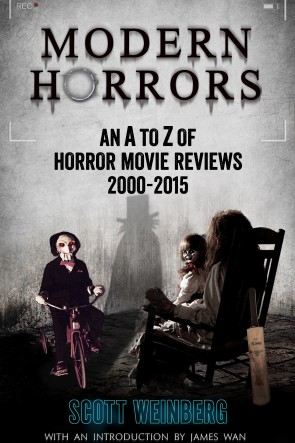Review: STEPHEN KING’S A GOOD MARRIAGE (2014){0}
The news that the next Stephen King adaptation, Big Driver, would be for the Lifetime network shows how times have changed: once upon a time, movie adaptations of King’s films were R-rated horrors too gory or disturbing for the mainstream; now one of his stories would debut on the US network which broadcasts Dance Moms, Wife Swap and Girlfriend Intervention (three titles, three demographics covered)? And here’s another adaptation of one of the four novellas in from King’s 2010 collection Full Dark, No Stars, which would sit comfortably on Lifetime nestled between The Witches of East End and Grey’s Anatomy re-runs. A Good Marriage is the first story King himself as adapted for the screen since Pet Sematary 25 years ago. But is it any good?
The source story is far from the master’s best work, but it does a decent job of describing what happens when a middle-aged, long-married woman, Darcy, discovers that her husband, Bob, is not the mild-mannered, coin-collecting accountant she always thought she was, but a psychotic, trophy-collecting serial killer known as ‘Beadie’. Will she turn him in, destroying her family in the process, and possibly casting doubt on her own ignorance of his crimes? Or will she turn a blind eye, and run the risk that he might kill again, in which case the blood would be on her hands?
As the basis for a film adaptation, A Good Marriage was always going to be small in scale (but then, so was Misery), not because it’s a novella (King’s novella’s are the length of many authors’ novels) but because it’s an intimate portrayal of a humdrum, but nominally happy, small-town marriage with a devastating secret at its heart. The problem with the film is more that the dialogue King puts in the mouths of Darcy (Joan Allen) and Bob (Anthony LaPaglia) to establish the everyday intimacy of a long marriage, sounds clunky and unrealistic, especially when compared to the novella, written from Darcy’s point of view.
Things get a little more interesting when Darcy discovers Bob’s dirty little secret, and when a mysterious stranger (Stephen Lang) reveals himself in the final act, but the larger issue is with the soporific pace at which the tale unfolds – it feels like an hour’s worth of story stretched to fill a hundred minutes. The fault largely lies with Peter Askin, who made a fine documentary about blacklisted screenwriter Dalton Trumbo (in which Joan Allen also appeared), but whose blandly competent direction robs the film of its potential for emotional drama, or even black comedy. He draws a good performance out of Joan Allen (who, as she ages, looks increasingly like Gena Rowlands – no bad thing), but her efforts – and everyone else’s – are ultimately wasted in a drab, drawn-out movie-of-the-week which fails to live up to the promise of its premise, its source material, its screenwriter, and – especially – its poster.
David Hughes (@DavidHughesTwit)








